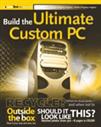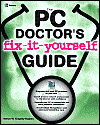Sample chapters
May 18th, 2005EMail this article
This is another great post by Joe Wikert of Wiley Publishing (his blog has dozens of insider tips on tech authoring and in my mind is recommended reading for all tech authors - current and prospective). In this post he talks about the "sample chapter".
In my time I've written a number of sample chapters. Some were worth writing because I got the writing contract I wanted and I was able to slot the chapter into the manuscript with little or no editing, which meant that I had a free chapter for the book (well, OK, not free but it felt that way!). Others I felt were a waste of time (or at least could have been time better spent) because either the publisher didn't want the book after all (bright side of which being that I had a sample chapter to take elsewhere, so not all was lost) or I got the contract but the series that the publisher then wanted the manuscript written for was so different to the style of the chapter that I'd written that it wasn't usable and had to be re-written. This is the sort of thing that you want to avoid if at all possible - you should be writing the sample with the final manuscript in mind.
Writing a sample chapter is certainly a worthwhile exercise, it sharpens the mind on the task of writing like nothing else (well, other than contracts and deadlines). If you've never written a book and what to, then writing a sample chapter can be an eye-opening experience. It can help to get into a style of writing and also help by giving you practice in structuring your outputs into headings and paragraphs and images. It is also a great way to bond with your editor and the staff at the publishing house you might later be working with. It's also a great moral booster - you started off with the blank, unblinking face of the word processor and filled X number of pages with good stuff. This is much further than most who want to write a book get! ![]()
Remember that editing is work too (just like writing) and it's not fair to submit samples to publishers that you aren't interested in working for and expect the editors to give you feedback on it!
However, do keep in mind what sample chapter writing is at heart - writing without a contract. And if you don't have a contract you are writing for free with no guarantees.
Before you get into writing samples make sure that you have a good back and forth with your contact at the publisher in question. Try to get a feel for how committed and enthusiastic they are to the idea in question before you start writing (most publishers though are aware of the fact that it's also work for you as the prospective author and most don't ask for samples unless they have a good feeling about the book). If you have doubts make sure that you clear these up before you commit time to writing samples.
Nowadays I don't write sample chapters along with the proposal (I do write practice runs just for my own piece of mind and to get some perspective and clarity on the topic but these are usually just for my consumption) - most publishers have their own formats that they will want you to work to and you'll find yourself reworking (or even rewriting) the sample for each publisher. If asked I will though and I enjoy the process.
Some sample chapter tips:
- Make sure that you have the author guidelines for the publisher and a copy of the template before you start! Make sure that you are writing the sample chapter in the style most likely to be used for the book
- Spend a little time getting used to the template. A dry run where you just submit a portion is good for starters. This way you are sure that you are using the headings, markup and image placeholders right. If not, you can get some feedback on it sooner rather than later. Submit this early and get feedback on your usage of the template
- Pick a sample chapter from your proposal that is representative of the book as a whole. If your books is mostly text and images then don't pick the only chapter with loads of tables in it
- Spend some time getting into the style that the editor/series wants or that you feel is right for the book. Free writing is good for this (where you just write in the style that you are aiming for, concentrating on how is sounds and flows rather than the technical content
- If you are unclear, ask for advice along the way. Editors don't look badly on your for doing this, in fact, they love it because in the long run it means less work for them!
- Make a note of how long you took to write the sample. This will give you a good starting point for how long the other chapters will take
- Give your sample an edit before you send it off (I do this with each and every chapter I submit). If possible allow the chapter to rest for a day or so before you edit it. By doing this you'll catch many of the inaccuracies before it goes tot he editor/tech editor. Also, sentences that don't make sense will spring out at you. This extra time spent at this stage will save you more time in the long run
- Enjoy the process - this could be the first chapter of the manuscript of your book!
- Finally, don't fill your sample chapter (or proposal for that matter) with copyright notices, all rights reserved statements and stuff like that. It looks silly and unprofessional and if you are submitting a proposal or sample chapter to a publisher where you think this is a necessary step then you need to find another publisher!
Related Posts
- “Build The Ultimate Custom PC” - Out 12th December!
- Editing - old school style!
- 2: Blog tip - Short conversations, long conversations
- CHRISTMAS.EXE - Naughty list!
- More Mac OS X malware







